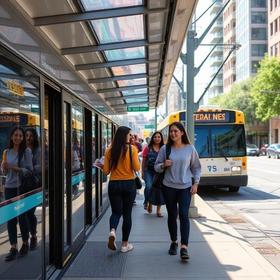The arrival of a global economy has increased the need for higher education that is more globally focused today. A new study suggests that community colleges are answering that call, providing students with education and experiences that have a much longer reach than ever before. Many individual schools are also directly answering the need for global education by introducing programs that help students expand their horizons – and their world – from their local community college campus. With plenty of options to choose from today, community college students can rest assured the education they receive will prepare them for a future in a world that has become larger and smaller at the same time.
Study Indicates International Business a Focal Point at Community Colleges
Researchers at Michigan State University conducted a recent study. According to the MSU website, the study found that in 2008, only about 51 percent of community colleges in the country offered basic courses in international business. In just four years, that number has skyrocketed to 85 percent. With a significant number of college students in the United States attending community college today, those findings show the country is on the right track to cultivating a more globally-minded workforce in the future.
This video discusses international business in the California Community Colleges.
“The most important takeaway is that we as a nation appear to be putting funds into community college education to






















